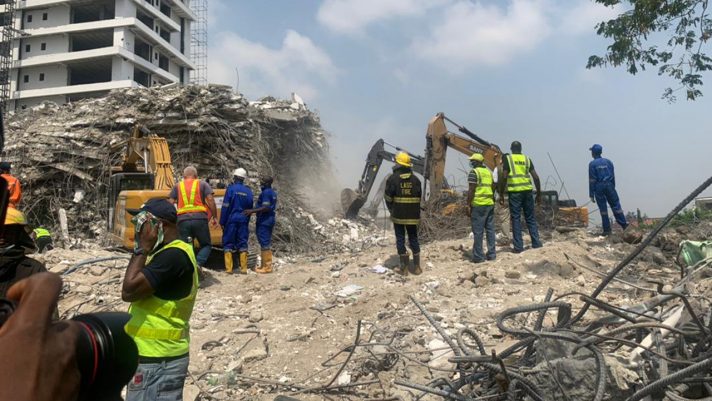The Lagos State Tribunal Inquiry into the collapse of a 21-storey building in the Ikoyi area of the state has revealed why its activities have been kept away from the public.
The Chairman of the Tribunal, Toyin Ayinde, who is also the President of Nigeria Institute of Town Planners, on Monday stated that the tribunal’s activities are not made public due to professional ethics.
Ayinde said this in a press conference held at the Lagos State Waterways Authority Terminal Building, Ikoyi.
This was announced in a statement titled, ‘Ikoyi Building Collapse: Tribunal Awaiting Results on Construction Material Tests’.
According to Ayinde, panel members are “compelled to speak only when investigations have been made, reports and documents submitted, queried, analysed and discussions held with relevant stakeholders.”
The tribunal which comprises six professionals in the private sector was set up by Governor Babajide Sanwo-Olu and began sitting immediately after its inauguration on Thursday, November 4, 2021.
Within two weeks of operation, it had received documents from some government MDAs, which panel members had started studying.
Ayinde also disclosed that results of the tests conducted on the construction materials are still being awaited.
He said, “There may have been concerns or agitations about why the Tribunal has not spoken to the Press. We will like to state that members of the Tribunal are professionals, and our calling demands that we make statements from informed and verified positions. “We are compelled to speak only when investigations have been made, reports and documents submitted, queried, analysed and discussions held with relevant stakeholders.
“The Tribunal would like to state that some documents have been received from some government MDA’s and members have started studying them. We have also interviewed some of the LASG staff in the relevant MDA’s.
“We, however, appeal to members of the public, professional bodies and construction industry stakeholders, as well as individuals who have useful information and invite them to submit memoranda that have a direct bearing on the particular issue being investigated, as well as their recommendations to prevent future occurence.”

